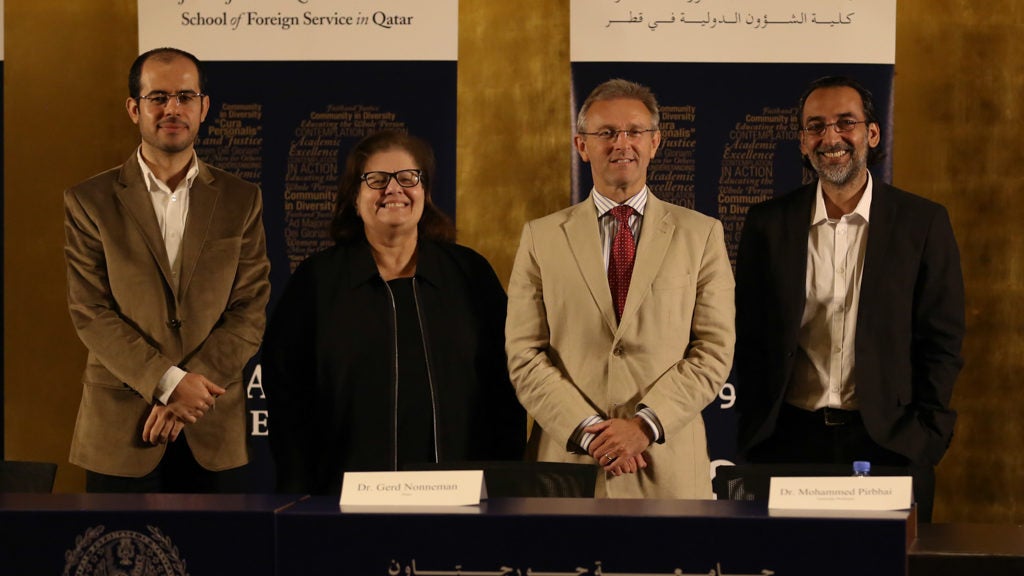A Powerful Conference to Celebrate Ten Years of Georgetown in Qatar

Georgetown University in Qatar celebrated its Ten Year Anniversary with a special two day conference titled “Scapes of Power: A Critical Appraisal” featuring prominent scholars and academics from across the world, on February 3rd and 4th, on the school’s campus.
This conference presented a sweeping appraisal of historical and contemporary examples of power expressed through cultural, social, economic and political institutions, as well as identifying and analyzing nontraditional modes of power that are emerging from the dramatic political shifts currently underway worldwide. A range of topics presented new ways of understanding how power has been used to control society from above, but also how it can be harnessed to enable change from below.
“We are celebrating what Georgetown University does best: innovative thought. So to celebrate ten years of intellectual innovation at Georgetown, we want people to think of power in a new way and through thoughtful and innovative research, which is in keeping with the University’s reputation as a premier research institution. To bring new meaning to the ideas of power and to explain the future through understanding new and emerging trends, we’ve moved away from a Weberian style or approach of understanding power as central and top down to show that power is diffused, that there are many spots of light that are not recognized.” – Dr. Amira Sonbol, Professor of History, member of organizing committee, Scapes of Power conference.
The conference began with a lecture from Dr. Laura Doyle, a professor at the University of Massachusetts-Amherst, on “Inter-imperial Powerscapes.”
“As part of the tenth anniversary celebrations, we decided to organize a conference that would be inclusive of all the fields researched and taught at Georgetown in Doha. In our discussions as a committee it became apparent that the one subject that binds all of us – whether specialists in economics, political science, history, linguistics, anthropology or literature – is power,” said Mohammed Reza Pirbhai, Associate Professor of History at GU-Q and chair of the Conference Working Committee.
Commenting further on the impact of the multi-disciplinary approach, he added that the conference participants, “represent cutting-edge scholars in a variety disciplines who would not usually gather at the same conference, let alone sit on the same panel. Few institutions other than GU-Q would have the multidisciplinary vision to embark on such a project, or the exemplary reputation necessary to draw the caliber of scholars scheduled to participate.”
Commenting on the faculty conference, GU-Q’s dean, Dr. Gerd Nonneman said:
“We opened the Qatar campus of Georgetown a decade ago with two dozen students and a few faculty members. Today, Georgetown in Qatar is a research powerhouse, constantly adding to the global body of knowledge about matters local, regional and international, and helping to lay the foundations for a sustainable research ecosystem that will be a lasting legacy for both Georgetown and the state of Qatar. In only ten short years, our multicultural community of alumni, students and faculty have helped to create some of the most meaningful research and relevant knowledge about international affairs and the Middle East, right here in Doha. We hope to continue building on this incredible momentum during the coming decade – and this conference is one wonderful signpost.”
The conference marking a decade of Georgetown University in Qatar included the panels: Empire;Then and Now, Within and Beyond the Nation-State, Empowering the Disempowered, Forging Knowledge and Culture, and Muslims in Global Perspective.